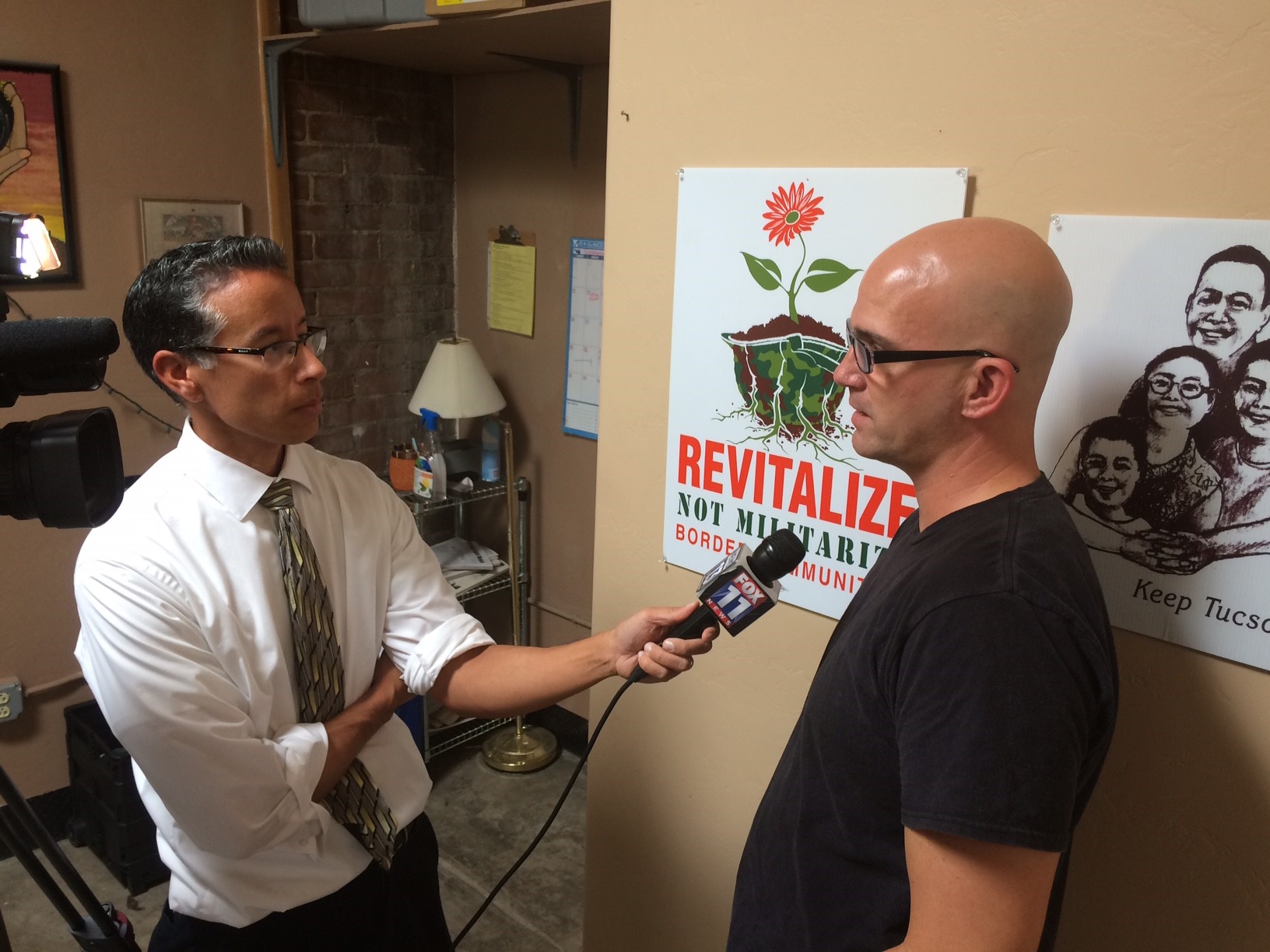
AFSC's Joe Watson speaks to a reporter at a Reframing Justice event in Arizona. AFSC-AZ / AFSC
How we talk about social justice issues matters. In Arizona, the American Friends Service Committee works to fundamentally change our system of criminal punishment. We challenge criminalization, oppose prison expansion, and advocate to reduce the size and scope of the system, including both physical places of incarceration, and systems of control, surveillance, and supervision.
In this work, we often encounter journalists who are eager to understand this work and allies who want to support it. But sometimes the way people talk and write about incarcerated people and the criminal punishment system can reinforce negative ideas about those who are system-involved and undermine support for humane policies.
Here are five tips to help you think and speak more carefully about these issues. Changing the narrative will take our collective power as media consumers and as advocates.
Tip 1. Use people-first language.
Often, news stories about someone with a criminal record refer to that person as a “criminal,” a “convicted felon,” an “ex-con,” or an “offender.” This language can be dehumanizing and pejorative. We like to use “people-first” language, saying things like “people who are formerly incarcerated” or a “person who is system-involved.” Using people-first language will help remind your audience that people who are formerly incarcerated are members of families and communities.
Tip 2. Check your biases.
What are your beliefs about people who have been incarcerated? About people who have dealt with addiction or homelessness or lived in poverty? Do you believe people with these experiences deserve to be heard? If you can admit your personal biases, you can correct them. When you are sharing stories about people who have been incarcerated or are part of marginalized communities, check your biases.
Tip 3. Humanize, don’t pathologize.
People with contact with the criminal punishment system have often suffered abuse, faced addictions, or battled other demons – but trauma is never the whole story. When you think of these stories, focus on people’s resilience, survival, and complexity. Reinforcing personal victories is an important part of telling these stories. Listen carefully to people who are system-involved.
Tip 4. Question authority.
As a former journalist who has worked for multiple magazines and newspapers—including Phoenix New Times and The Arizona Republic—I had an editor who once offered, “If your mother tells you she loves you, be sure to get a second source.” In other words, no one is above fact-checking, including our mothers and law enforcement. Police and prosecutors are not neutral actors in the criminal punishment system; they have a worldview and an agenda. So when you read a newspaper or watch the local news, don’t assume that law enforcement’s version of the facts—including “official” police records and county attorney filings—gives you the full picture.
Tip 5. Rethink our criminal "justice" system.
AFSC-Arizona doesn’t use the term “criminal justice system” because that suggests the system is about justice. Instead, we talk about the “criminal punishment system” or the “criminal legal system” because the system as it exists is focused on punishment—not justice. Real justice fosters accountability and healing by those who have committed harm, and forgiveness and compassion from survivors. We should be mindful of the language we use around this issue in order to help build alternatives to the punishment-focused system.
With these five tips, you may begin to notice when your local newspaper reporter or newscast uses dehumanizing, stigmatizing language in the stories of people who are system-involved. Call them out! Write letters to the editor. Post the stories on social media and educate your friends. Incorporating these tips into your own thinking on these issues will help AFSC build support for humane, just policies.